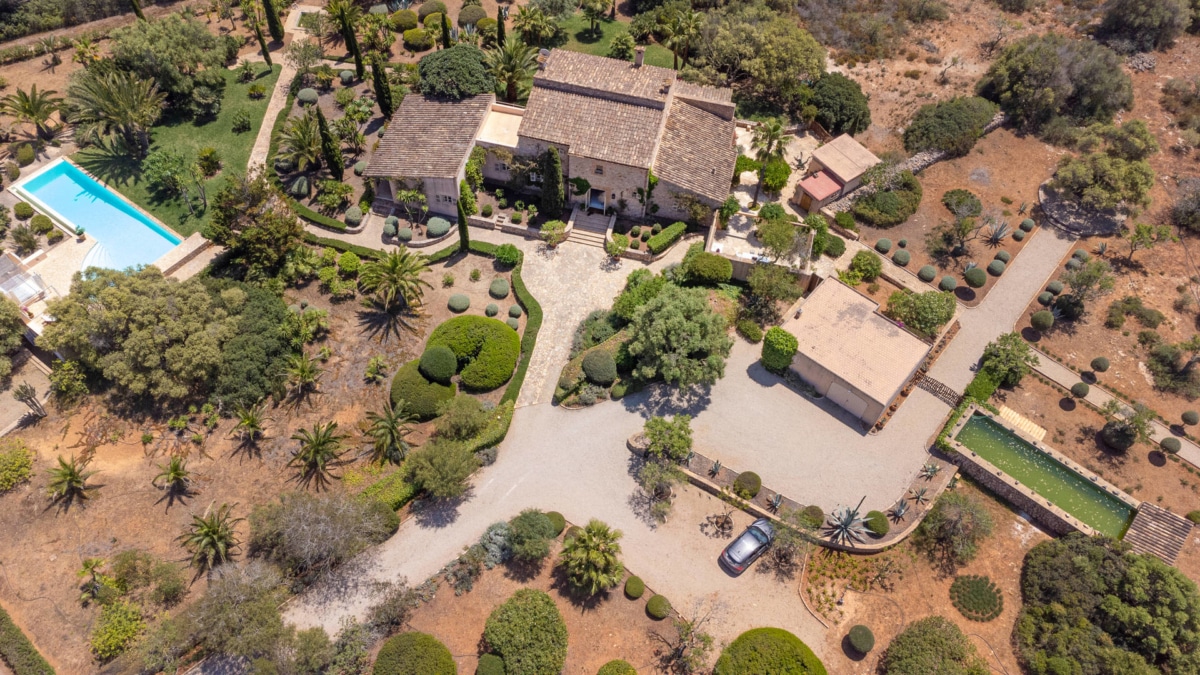
Orders for deconstruction or demolition of illegal structures can quickly turn the dream of living on the Mediterranean into a nightmare. Even so-called grandfathering cannot be regarded as a “clean note of health”. A careful examination of the desired property in terms of civil and building law and construction technology - before the notary appointment - should definitely be carried out. Finding a tax-optimised and cross-border acquisition structure in advance is part of the overall package.
It is no secret that many properties on the Balearic Islands do not necessarily comply with all building regulations. Various deconstruction and/or demolition orders have also been issued by the authorities and implemented in a controlled manner. Anyone considering the purchase of a property on these wonderful islands should carry out a “careful examination” (due diligence) of the property before the final purchase. Whether or not an Option or Arranged Contract has been entered into, this step is a crucial one that should be taken prior to the notarised purchase of a property. Unfortunately, the extract from the land register does not provide certainty as to whether a property is legal or has illegal sections. Another reason is that after the purchase of a property in Spain, the possibilities of withdrawal, reduction and compensation are limited. Only by careful examination before buying the property can possible damage be averted. In the following we have presented the essential contents of this.
Due to our daily practical experience and consultancy for more than 20 years, we have been able to observe well-founded indications of a boom in the Balearic real estate market despite the fading pandemic. In 2020, for example, the capital Palma has seen increases of up to 42%, the southwest of the island almost 38% with an average investment of 1,500,000 €.
When deciding to purchase a property in Mallorca, it is therefore advisable to have access to local agents who speak the local language and are familiar with the customs, peculiarities and culture of the region and who are able to assess the legal circumstances correctly. These factors not only contribute to legal certainty, but also allow the found circumstances to be confidently linked to an optimal asset planning structure.
“Due diligence” serves to examine and evaluate a property in the context of a transaction by a potential buyer. The term actually comes from US capital market and investor protection (securities laws). We also know it from civil liability law in the form of negligence. According to this, a person acts negligently if he or she has not exercised “due care and diligence”. This negligence should therefore be avoided when buying or selling real estate, as in this case one would have to take into account one’s own fault of not having carried out the due diligence, and this can be expensive under certain circumstances.
The aim of due diligence is to obtain a detailed and systematic analysis of qualitative and quantitative information and data of a property. This reduces the asymmetry of information between two parties and increases the quality of the basis for decision-making. The object to be audited can be a property, a construction project, a plot of land or even a whole portfolio of objects. Only with the help of this examination do the risks become more transparent and tangible.
Depending on the occasion and the client’s needs, due diligence can be interpreted differently in terms of breadth, so that only individual elements are examined, or in terms of depth, which in turn is a question of time and/or cost.
Real estate transactions of any kind are fundamentally characterised by information deficits. The main objective of due diligence is to minimise risks in the planned transaction and to evaluate the related investments. These risks can be divided into two variables: On the one hand, the level of probability of occurrence and, on the other hand, the level of damage that may result. The objective of any due diligence is to disclose all relevant facts in order to provide the basis for a decision and not to be surprised afterwards. Sub-objectives of a due diligence can be:
Risk awareness
Risk minimisation
Revealing hidden opportunities and/or risks
Basis for the valuation and thus for the purchase price determination
Revealing hidden cost drivers
Identification of negotiation potentials for purchase price determination
Facts that have to be regulated in the purchase contract
Revealing future potential
Basis for the investment decision
Preservation of evidence for possible warranty claims
Read the complete article of our partner European Accounting/ Plattes Group here!
With 80 employees, including 16 tax consultants and lawyers, the perfect German-speaking partner in Spain and especially on Mallorca!











